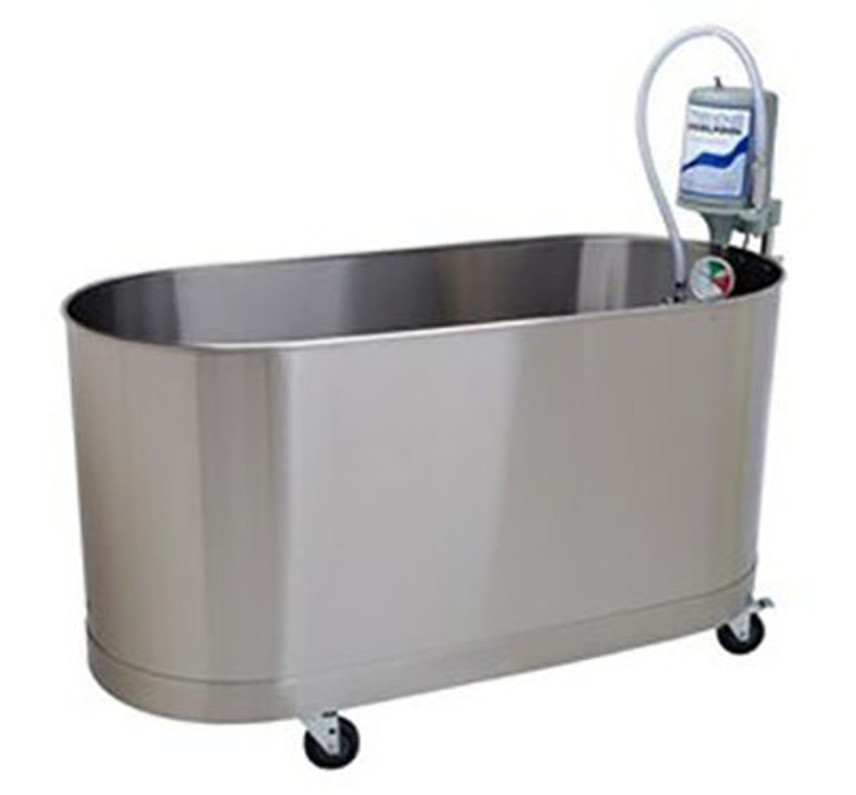Understanding Hydrotherapy and Its Benefits
 the ancient practice of hydrotherapy has emerged as a powerful therapeutic tool, harnessing the healing properties of water to promote physical and mental health. From ancient civilizations to modern-day spas and medical facilities, hydrotherapy has stood the test of time, offering a wide range of benefits for individuals seeking relief from various ailments.
the ancient practice of hydrotherapy has emerged as a powerful therapeutic tool, harnessing the healing properties of water to promote physical and mental health. From ancient civilizations to modern-day spas and medical facilities, hydrotherapy has stood the test of time, offering a wide range of benefits for individuals seeking relief from various ailments.
What is Hydrotherapy?
Hydrotherapy, also known as water therapy, is a form of treatment that utilizes water in various forms—such as baths, showers, wraps, and compresses—to promote healing, relaxation, and overall wellness. The practice of hydrotherapy dates back thousands of years, with cultures around the world recognizing the therapeutic properties of water for both physical and spiritual purification.
Types of Hydrotherapy
- Hydrothermal Baths: Immersion in warm or hot water baths, such as hot tubs, saunas, or thermal springs, is one of the most common forms of hydrotherapy. The heat from the water helps to relax muscles, improve circulation, and alleviate pain and stiffness in the body.
- Contrast Hydrotherapy: This involves alternating between hot and cold water treatments, such as hot and cold compresses or contrast showers. The contrast between temperatures helps to stimulate circulation, reduce inflammation, and enhance the body's natural healing response.
- Whirlpool Therapy: Whirlpool baths or Jacuzzis utilize jets of water to provide massage and hydrotherapy to specific areas of the body. The pulsating action of the water helps to relax muscles, reduce tension, and promote relaxation.
- Hydrotherapy Exercises: Aquatic exercises and rehabilitation programs performed in water, such as swimming, water aerobics, or hydrotherapy pools, are used to improve strength, flexibility, and mobility while minimizing stress on the joints.
Benefits of Hydrotherapy
- Pain Relief: Hydrotherapy is highly effective in relieving pain associated with various musculoskeletal conditions, such as arthritis, fibromyalgia, muscle strains, and joint injuries. The warmth and buoyancy of water help to soothe sore muscles, reduce inflammation, and alleviate discomfort.
- Improved Circulation: The hydrostatic pressure exerted by water helps to improve blood circulation, which can enhance oxygen and nutrient delivery to tissues, promote detoxification, and facilitate the removal of metabolic waste products from the body.
- Muscle Relaxation: Immersion in warm water promotes muscle relaxation by reducing muscle tension, spasms, and stiffness. Hydrotherapy also triggers the release of endorphins, the body's natural pain-relieving hormones, which contribute to a sense of well-being and relaxation.
- Stress Reduction: Hydrotherapy provides a tranquil and soothing environment that promotes relaxation, reduces stress, and alleviates anxiety. The rhythmic movement of water, combined with the therapeutic effects of heat and massage, helps to calm the mind and induce a state of relaxation.
- Enhanced Range of Motion: Hydrotherapy exercises performed in water offer a low-impact and supportive environment for improving joint mobility, flexibility, and range of motion. This is particularly beneficial for individuals with arthritis, chronic pain, or mobility impairments.
- Skin Health: Hydrotherapy can improve skin health by promoting circulation, opening pores, and facilitating the removal of toxins and impurities from the skin. The moisturizing properties of water help to hydrate and soften the skin, leaving it feeling refreshed and rejuvenated.
- Improved Sleep: Hydrotherapy has been shown to promote better sleep quality by inducing relaxation, reducing muscle tension, and alleviating pain and discomfort. A warm bath or soak before bedtime can help to prepare the body and mind for a restful night's sleep.
In conclusion, hydrotherapy offers a multitude of benefits for both body and mind, making it a valuable therapeutic modality for individuals seeking natural and effective ways to improve their health and well-being. Whether used for pain relief, stress reduction, muscle relaxation, or overall rejuvenation, the healing waters of hydrotherapy continue to inspire and uplift individuals on their journey to optimal health and vitality.
Recent Posts
-
Overcoming Challenges in Sports Medicine Clinics: Tips for Success
Running a sports medicine clinic presents unique challenges that require a balance of clinical exper …Dec 2nd 2024 -
Enhance Your Work as an Occupational Therapist with Versatile Tools for Diverse Client Needs
As an occupational therapist, you understand the importance of having adaptable and effective tools …Nov 26th 2024 -
Enhancing Manual Muscle Testing with Closed Kinetic Chain Testing
Manual muscle testing (MMT) is a core assessment method for evaluating muscle strength and function …Nov 12th 2024



